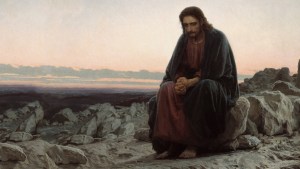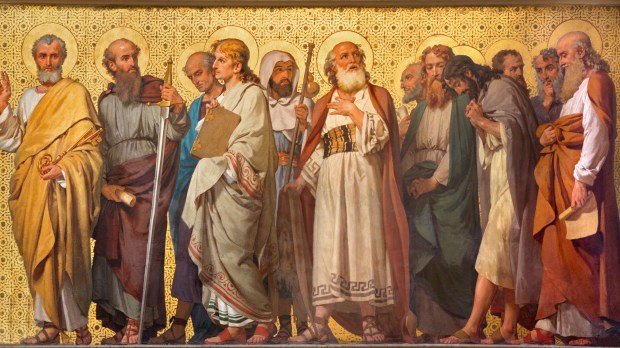While it may seem as though Lent has been around since the earliest days of Christianity, historians continue to debate whether the Apostles themselves established the season of Lent.
For example, an early 20th-century book, A Pulpit Commentary on Catholic Teaching, argues that the Apostles established Lent.
Many of the great Fathers and Doctors of the Church say that the Apostles decreed that the great solemnity of Easter should be preceded by a universal fast and that in remembrance of Christ’s forty days fast in the desert, they instituted Lent.
However, at the same time, the authors of the book grant that there was no uniform way of observing Lent in the early Church.
To begin with there was no uniform way of observing it. But the faithful for forty days gave themselves to fasting and prayer in imitation of their Master. In the beginning the Christians adopted the same customs of fasting as were prescribed in the Old Law by which one meal only was allowed on fasting days and that after sunset.
This observation is further confirmed by Nicholas V. Russo in an article written for Baylor University.
Closer examination of the ancient sources, however, reveals a more gradual historical development. While fasting before Easter seems to have been ancient and widespread, the length of that fast varied significantly from place to place and across generations. In the latter half of the second century, for instance, Irenaeus of Lyons (in Gaul) and Tertullian (in North Africa) tell us that the preparatory fast lasted one or two days, or forty hours—commemorating what was believed to be the exact duration of Christ’s time in the tomb.
It wasn’t until the “Council of Nicea in 325 did the length of Lent become fixed at forty days.”
Part of the reason behind a varied observance of Lent in the first three centuries of the Church is that Christians were often simply trying to survive and not get killed. Widespread persecution in the Roman Empire did not allow for universal liturgical seasons.
While the Apostles may not have established Lent as we know it, they likely did observe a period of intense preparation before Easter, following Jesus’ example of fasting and prayer.



